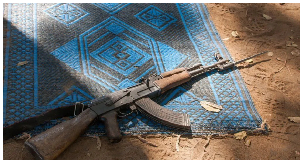Chiefs have been urged to create an ethical environment that would help minimize opportunities and incentives for corruption.
They should also serve as role models for honesty, integrity and accountability, while leading the crusade against corruption, indiscipline and lawlessness in society.
Mr Richard Quayson, Deputy Commissioner for the Commission on Human Rights and Administrative Justice (CHRAJ), who made the call, said chiefs had a crucial role to play in the fight against corruption.
He was speaking at a meeting of the National House of Chiefs (NHC) to brief members on the National Anti-Corruption Action Plan (NACAP) in Kumasi.
Mr Quayson said corruption had been a major setback to the country’s accelerated development, and that, there was the need for all Ghanaians to show keen interest and play effective roles to address the social canker.
He urged traditional rulers to lead by example, the crusade to restore vital cultural values, such as honesty and good character, among others, to help imbue discipline in the people.
Mr Quayson appealed to the NHC to institute a national cultural review to help bring back the long-cherished cultural and moral values that made Ghanaians unique and distinct from others on the continent.
Togbe Afede XIV, President of the House said the idea by anti-corruption institutions to demand evidence from people who reported corrupt cases, was working against the enforcement of laws against corruption.
He said anti-corruption agencies could go beyond this evidence by checking on the bank accounts or properties of people who had been accused of corruption to investigate and prosecute.
Togbe Afede pointed out that corruption was the number one stumbling block in national development and that there was the need for effective law enforcement to curb the canker which was affecting the development of Ghana.
General News of Friday, 27 September 2019
Source: ghananewsagency.org













